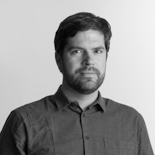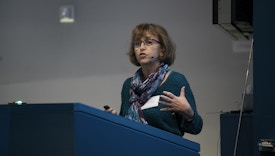
Kevin C. Eggan, Ph.D.
Professor, Department of Stem Cell and Regenerative Biology, Harvard University
Director, Stem Cell Program at the Stanley Center for Psychiatric Research, Broad Institute of MIT and Harvard
SFARI Investigator
Website
As a young investigator in the burgeoning field of stem cell biology, Kevin Eggan has garnered international recognition for his seminal work and a number of high profile awards for his creativity and productivity, including the MacArthur Foundation “Genius Grant” in 2006. He has made fundamental contributions to the fields of stem cell biology and cellular reprogramming, which in turn led his group to pioneer an entirely new strategy for studying human disease.
Eggan completed his B.S. in microbiology at the University of Illinois in 1996. A two-year Pre-doctoral internship at Amgen at the National Institutes of Health in Bethesda solidified his desire to pursue a career in academic research. He enrolled at the graduate school of Massachusetts Institute of Technology in 1998 shortly after the cloning of Dolly the Sheep was reported. During his Ph.D. training, he actively pursued projects focused on cloning, stem cells and reprogramming after nuclear transfer under the guidance of genetics pioneer, Rudolf Jaenisch. He stayed in the Jaenisch’s lab after his graduation for a one-year postdoc training in 2002. During that time, he conducted a collaborative study with Richard Axel, a Nobel Prize winner at the Howard Hughes Medical Institute.
In 2003, Eggan moved to Harvard University as a junior fellow and then became an assistant professor of Molecular & Cellular Biology at the Stem Cell Institute in 2005. In 2009, he was selected as one of 50 Howard Hughes Medical Institute Early Career Scientists receiving six years of dedicated support to conduct transformative research. Eggan was promoted to Professor in the Department of Stem Cell and Regenerative Biology in 2012. The success of his laboratory in the study of motor neuron disease has led to his appointment as the Director of the Stem Cell Program at the Stanley Center for Psychiatric Research at the Broad Institute. In this role he is leading a group of scientists to expand the platform to increase reproducibility of stem cell and reprogramming technologies with the ultimate goal of improving understanding and treatment of psychiatric diseases.
